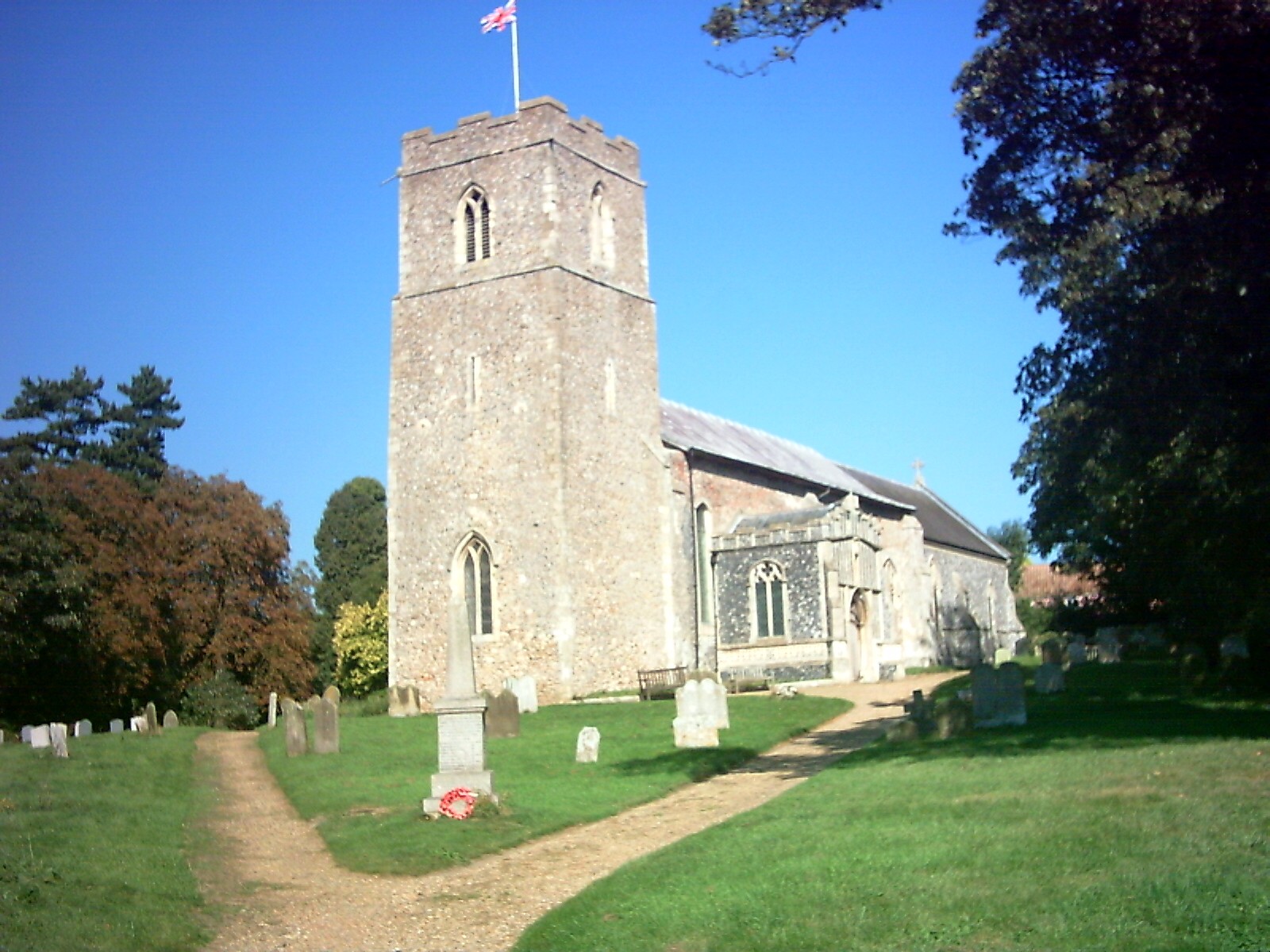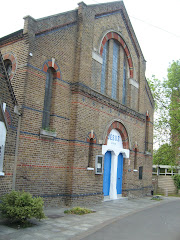
Because he was employed by Henry Bardwell and had no fixed convictions of his own when he came to London, Harvey attended the old Surrey Tabernacle in Southwark along with Bardwell and so sat under the ministry of the leading Strict Baptist of his day, James Wells (1803-1872). Hampshire born, Wells had grown up a godless man but following an illness in his early twenties he came under deep conviction and was eventually converted through Hyper-Calvinist Christians. He himself was a gifted preacher and came to have a large and very loyal congregation (second only in size to Spurgeon's - with whom he tangled in the pages of the Earthen Vessel).
Harvey attended Surrey Tabernacle for some 15 years and became convinced of the doctrines of election and reprobation. He tried to convince others about these truths, says his son, but he himself did not think he was was elect. He was “unhappy and a stranger to the peace of God that passeth understanding”. He was clearly not finding Wells' ministry a blessing to his soul.
On December 5, 1848, the first purpose-built Baptist chapel in central London opened - Bloomsbury Chapel. The first pastor there was William Brock (1807-1885) the later abolitionist and biographer. Originally a watchmaker, Brock trained at the Baptists' Stepney College before spending 15 years working in Norwich. James had heard him there in the late 1830s and had not been impressed. However, he took the decision to attend for 6 months, to “give the minister and the doctrines which should be preached a fair trial”. “The first month had not passed away" he came to write "before I found what I had long been seeking in vain. I was able to rejoice in God through our Lord Jesus Christ.” He began to keep a diary and one of the first entries in it, made at 7 am on Saturday, December 30th, 1848, related his conversion.
He wrote these words
This has been the most remarkable night of my existence, and the most precious. Not one wink of sleep have I had during the whole time, from eleven o'clock last night till seven this morning. Last night, as has been my custom recently, I noted down the most important circumstances which occupied my mind during the day; and having had many very important and apparently difficult matters to arrange when I arose in the morning, which during the day were arranged in a way and manner much more satisfactory than my partner and I had been able to conceive of, I felt impelled to record my gratitude to God for so marked (as it appeared to my mind to be) a manifestation of His over-ruling all things to accomplish in the end His own purposes.
On retiring to rest I committed myself to God in prayer, with more freedom of speech than usual; and in pleading for the pardon of sins, and realising the bare possibility of their being forgiven and blotted out for Christ's sake, I felt overwhelmed and could not say another word. In bed, I desired the Lord to have mercy upon me and accept of my imperfect gratitude for His abundant mercies and from that time till 4 am my mind was occupied on matters of business with which I had been concerned during the day, and as I appeared to be at an end of my musings, knowing that today is our stock-taking, and that I shall be engaged in the warehouse till twelve o'clock at night, I again tried to go to sleep, and breathed a desire (which, if it be the Lord's will, may He grant) that He might enable me to be a benefit amongst those under our own roof both for their temporal and spiritual welfare. When in a moment I was arrested by an idea, and these words were fixed in my mind “Like as a father pitieth his children, so the Lord pitieth them that fear Him.' As a father! - 'as a father pitieth his children.' Never did I realise the pity and mercy of God in such a sweet and endearing light. I could but repeat, 'As a father pitieth'. Seest thou a father embracing his son? Seest thou a father whose son is in trouble, whose son is in danger? Seest thou a father bestowing his riches and honour on his son in all the love of his heart? So, even 'the Lord pitieth them that fear Him'. A man may pity a faithful dog, a favourite horse; but as a father pitieth his children.' While lost in admiration in the thought, came one more precious still. 'Because you are children, God hath sent His Spirit into your heart Crying, Abba, Father.' 'God my Father' in this sense, and with these endearing words, can it be to me? When, lo! 'If children, then heirs, heirs to God and joint heirs with Christ.' This was too much for my heart; my only language was, Oh, for faith to believe!' - and I could not possibly restrain my tears. I could only cry, 'Lord, help! Can it be my portion?' And I continued with this threefold text in my mind adoring its beauty though its blessedness seemed far too great for me; when again: 'Can a woman forget bet sucking child, that she should not have compassion on the fruit of her womb? Yea, they may forget, yet will not I forget thee.' I laid thus for some minutes, for my heart was full to overflowing, and enquired 'What does this mean?' Then came as an answer: 'The love of God shed abroad in the heart.' Then followed: 'God so loved the world that He gave His only begotten Son, that whosoever believeth on Him should not perish, but have everlasting life.' The words 'everlasting life' seemed fixed in my ears. There came as a climax: 'I have loved thee with an everlasting love, therefore with loving kindness have I drawn thee.' I could hardly repeat the words. Then came back the thought, 'As a father pitieth,' but I could not repeat the words;' God, my father, who hast loved me with such a love,' I could not say them for several times trying. The thought returned: 'The love of God shed abroad in the heart,' and 'God manifesting Himself to me as He doth not unto the world.' I remembered that I had pleaded with Him for this, and it appeared as an answer to prayer. I then enquired, and do so now I am writing, What is all this that is done ? Is it not to prepare one for some coming trial or difficulty? And my answer from my heart was Come sickness, poverty, peril or death, I can meet them all with the love of God shed abroad in my heart by the Holy Ghost. I resolved to write it all down, if God enabled me, as soon as I arose ... If this which I am writing ever be read by any other being, I pray that he may experience the blessedness which I this morning, from the hours of four till seven o'clock, have been made to feel.
The fatherhood of God was one of the truths that he particularly warmed to and continued to emphasise throughout his life.









